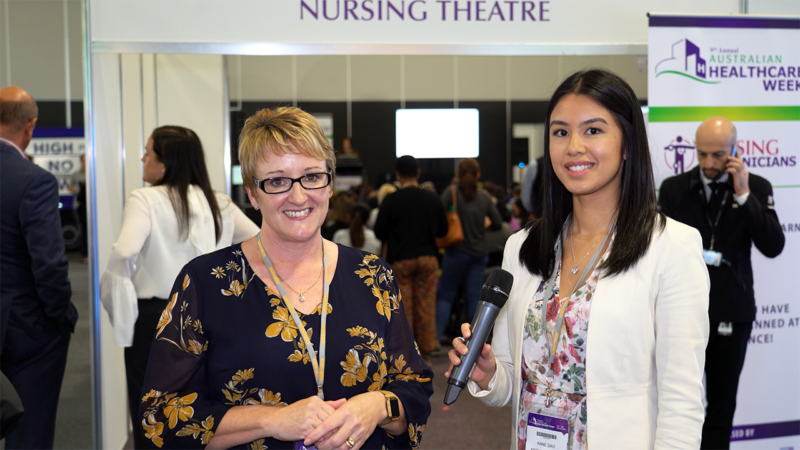RESEARCH FINDS MANY PRACTITIONERS FEEL UNDERPREPARED TO NAVIGATE MEN’S DISTRESS Movember launches national rollout of Men in Mind tools to build trust, foster openness, and improve outcomes for men seeking support
With
Dr Zac Seidler,
Clinical Psychologist & Global Director,Men’s Health Research,
Movember &
Associate Professor, Orygen,
The University of Melbourne
AUSTRALIAN HEALTH JOURNAL SEGMENT
Filmed in Sydney | June 2025
Movember’s Men in Mind expands nationally to equip mental health professionals with the tools to better connect with men before they reach crisis point. Research conducted by the Men’s Health Research team at Movember has found men account for three in every four suicide deaths in Australia, and more than 50% had sought help in the year before they died.
These confronting figures expose a critical disconnect between men reaching out and the mental health system’s ability to engage them in ways that keep them connected to care. Movember is taking action to help close that gap.
Led by the Movember Institute of Men’s Health, Men in Mind is an evidence-based training program developed by Dr. Zac Seidler, a clinical psychologist and Global Director of Men’s Health Research at Movember, that equips clinicians with the tools, confidence, and practical strategies to better connect with men before they reach crisis point.
Despite their best efforts, many practitioners feel underprepared to navigate men’s distress in clinical settings. Men in Mind addresses this gap by providing practical tools to build trust, foster openness, and improve outcomes for men seeking support. The program is specifically designed for mental health professionals, including psychologists, counsellors, and other frontline mental health workers.
Through a mix of self-directed online learning, video demonstrations, and reflective practice, Men in Mind teaches mental health professionals how to adapt their language, build rapport, explore emotional communication and respond to distress and suicidality in ways that resonate with men. It also includes interactive scenarios based on real client experiences.
Australian Health Journal spoke to Dr. Zac Seidler, Global Director, Men’s Health Research, Movember about the world-first randomised controlled trial his team conducted demonstrating significant improvements in practitioners’ confidence and competence to engage and respond to help-seeking men. After completing the program, 82% of practitioners reported increased confidence working with men experiencing suicidality, up from 47% at baseline, with these gains maintained over time.
The national rollout of Men in Mind follows strong interest from mental health services across Australia, with the program already being adopted in both public and private practice settings. Men in Mind is part of Movember’s broader commitment to changing the face of men’s health by backing scalable, evidence-based programs that support early intervention and work to improve the lives of men, their families and communities.
Practitioners can learn more and enrol in the Men in Mind course at meninmind.movember.com.
Source: Adapted from Movember Men in Mind Media Release 9th June 2025
You Might also like
-
Spinal implant technology eyes global opportunity
Adelaide, South Australia wants to let the secret out, and be known as hub for medical devices, pharmaceuticals, biotechnology, and digital health. It boasts world-class research institutions, such as the University of Adelaide and SAHMRI, fostering innovation and collaboration. The city’s supportive government policies provide incentives, grants, and streamlined regulations for businesses. Adelaide’s skilled workforce, renowned for its expertise in health sciences, offers a talent pool to drive industry growth. Additionally, the city’s strategic location, advanced infrastructure, and strong healthcare ecosystem make it an ideal base for development, manufacturing, and market access, attracting companies in these sectors.
-
Making clinical trials participant friendly
Clinical trials are essential in developing new, improved, and more effective treatments and interventions. Without trials, researchers and professionals in the field cannot properly determine whether these new treatments and interventions are safe and effective.
The Clinials platform is geared towards patient centric trials and reducing site burden. The aim is to accelerate lifesaving medicines coming to market by connecting participants and researchers. The platform allows participants to come to researchers with their eligibility in hand among other capabilities.
-
Australian Healthcare Week Hospitals and Clinics New Content Patient Experience Planning, Culture and Growth
Sonia Marshall – South Western Sydney Local Health District
South Western Sydney Local Health District serves nearly 1 million people in a rapidly growing area of Sydney. Currently 250-300 families a week are moving into the region and with a growing population, the health district requires well executed strategy and delivery of healthcare to the population. Executive Director Sonia Marshall spoke with Australian Health Journal reporter Anne Dao at last week’s Australian Healthcare Week in Sydney, on supporting staff and the community. Sonia highlights the mission of delivering Safe Quality Healthcare at all times. In-time patient feedback is important and the SWSLHD has implemented a system called “My Experience Matters” to give near immediate response from patients on their level of care, whilst they are still on site at the hospital. The aim of the initiative is to quickly identify bad experiences that could be rectified.
Post Views:
3,207



